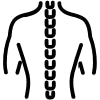Do you or your child have trouble sleeping? Do you wonder if it might be linked to ADHD? The link between ADHD and sleep problems is often ignored, but it can have a major impact on your daily life.
The ADHD-Sleep Connection
ADHD and sleep have a complicated relationship.
People with ADHD have a tendency to suffer from sleep problems, often beginning in very early childhood.
These conditions can also worsen ADHD symptoms, creating a vicious cycle of restlessness that can be difficult to break.
Understanding how ADHD impacts sleep can make it easier to find solutions that work for you.
An Early Start
For many children with ADHD, sleep problems begin to manifest at a young age. Some children may experience difficulty falling asleep, and others may wake up in the middle of the night. Both kinds of disturbances can result in chronic fatigue.
Poor sleep affects more than just energy levels, however. It also has an impact on cognitive function and emotional regulation. Recognizing how ADHD affects sleep—and especially during critical periods in children’s development—is crucial to ensuring healthy growth.
Circadian Rhythm and ADHD
People with ADHD often deal with a disrupted circadian rhythm. This altered “biological clock” means that people with this condition tend to be more active and alert in the evening, a symptom that can lead to delayed sleep phase syndrome (DSPS).
This phenomenon can exacerbate insomnia and disrupt natural sleep-wake cycles, amplifying ADHD’s negative effects on rest.
ADHD Symptoms and Sleep
The symptoms of ADHD directly impact sleep quality. Distraction, impulsiveness, and mental hyperactivity keep the brain spinning, making it more difficult to fall asleep at night. These factors, often associated with stress and nocturnal ruminations, may significantly disrupt sleep routines.
Sleep Problems Linked to ADHD

Difficulty Falling Asleep
For many people with ADHD, problems begin at bedtime. They can spend long hours tossing and turning, incapable of calming their minds. The link between ADHD and sleep is most evident here, as an inability to mentally disconnect, commonly associated with the disorder, presents a major obstacle to getting rest.
Waking Up in the Middle of the Night
Even when people with ADHD do manage to fall asleep, they often still have to contend with restless nights. Waking up in the middle of the night makes it harder to get deep, restorative sleep. Repeated waking is mainly caused by mental hyperactivity and difficulty with regulating waking times—two common ADHD symptoms that keep the brain in a state of alertness, even during moments of rest.
Insomnia
Insomnia is another sleep condition commonly associated with ADHD. Whether it’s occasional or chronic, it can be a challenge. Even one night of bad rest can lead to a day full of fatigue and trouble with attention and emotional regulation. These symptoms are partially the result of dopamine dysregulation and cognitive hyperactivity, both of which make it more difficult to fall and stay asleep.
Sleep Apnea
Even though sleep apnea, a disorder that causes people to temporarily stop breathing during the night, is not directly caused by ADHD, it is more common in people with this condition.
This increased risk can be explained by certain behaviors linked to ADHD. Hyperactivity and an inability to calm the mind, for example, can dysregulate sleep, cause weight gain, or make someone more likely to sleep in an unhealthy position—all of which increase the risk of sleep apnea. The ADHD-sleep apnea connection goes in both directions. Sleep apnea makes it harder to sleep deeply, and a lack of good rest worsens certain ADHD symptoms, like low energy levels and difficulty concentrating.
Trouble Sticking to a Sleep Routine
Establishing and sticking to a consistent sleep routine can be a major challenge for people with ADHD. Impulsivity and unexpected distractions frequently win out over the discipline to maintain regular bedtime hours.
Difficulty Waking Up
Mornings can be a challenge for people who suffer from sleep problems linked to ADHD. Between low energy and increased drowsiness, getting out of bed can be a battle whose consequences impact the entire rest of the day.
The Impact of Poor Sleep on ADHD
Concentration and Memory
A bad night of sleep will often aggravate the attention and memory challenges caused by ADHD. On days that follow nights of poor sleep, people with ADHD tend to have more difficulty staying focused and make more frequent errors related to a lack of attention.
Emotional Regulation and Chronic Fatigue
Insufficient sleep makes emotional regulation even harder. It intensifies irritability, frustration, and mood swings, all while contributing to a chronic fatigue that can be hard to recover from.
Physical and Mental Health
Poor sleep linked to ADHD doesn’t just cause problems for the next day. In the long term, bad sleep can harm one’s physical and mental health, increasing the risk of developing metabolic disorders, depression, and/or anxiety.
Tips for Getting Better Sleep with ADHD
Create a Restful Environment
Transform your bedroom into a sanctuary for sleep. Keep distracting objects like phones or computers in the next room, use blackout curtains to make your room as dark as possible, and invest in an ergonomic mattress and pillows to increase your chances of getting higher quality rest.
To learn more about what mattresses and sleeping positions can help you get the best sleep, check out our articles:
Change Your Diet and Lifestyle
A balanced diet and regular physical activity both make it easier to get good sleep. On the other hand, avoid consuming stimulants like caffeine in the evenings, which can make it more difficult to fall asleep quickly.
Minimize Screentime
Reducing your exposure to screens before bedtime is key to managing the impact of ADHD on sleep. Since blue light disrupts circadian rhythm, taking a break from the digital world in the evenings is critical.
Relaxation Techniques and Nighttime Routines
Learn to integrate relaxation methods into your evenings. Meditation, breathing exercises, and calming rituals like reading can slow down the stream of hyperactive thoughts and make it easier to transition into restfulness.
FAQ: ADHD and Sleep
Do People with ADHD Sleep a Lot?
Though some people with ADHD make up for nights of bad sleep by taking long naps during the day, the majority have trouble getting sufficient restorative rest.
How Can Someone with ADHD Sleep Better?
Developing a structured routine, limiting stress factors, and using relaxation techniques can all be effective strategies. For more in-depth, personalized support, consult a healthcare professional.











